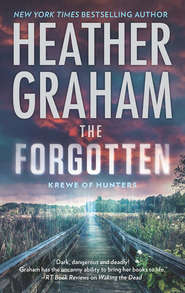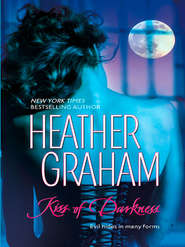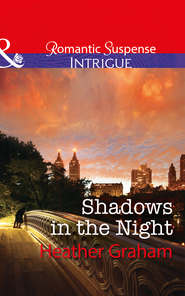По всем вопросам обращайтесь на: info@litportal.ru
(©) 2003-2024.
✖
Wicked Deeds
Настройки чтения
Размер шрифта
Высота строк
Поля
“The ghost of?” Vickie asked, frowning.
“Looked just like Poe—and disappeared in the wink of an eye. In my experience that means, A, I’ve worked at this job too long, B, there’s a really amazing magician at work in Baltimore, or, C, the ghost of the master of horror and mystery himself, Edgar Allan Poe, is walking among us!”
3 (#u4c1cea3e-c0dc-5289-b0af-5bb3f1177773)
Vickie stood on North Amity Street, looking at the building that Edgar Allan Poe had once called home.
She was on her own; Griffin had headed to the morgue with Carl Morris. The medical examiner—Dr. Myron Hatfield—was going to start right in on Franklin Verne.
With the uproar in the city over the very unusual passing of such a man, it was imperative that he give a cause of death as quickly as possible. He had already been approached by various media outlets, of course.
He’d said he could not give out cause until he had received results on every test that must be considered when such a death had occurred.
Bravo, Myron! Vickie had thought. She was sure that certain things might quickly be obvious. She was glad that the man intended to be thorough—and that he wouldn’t be pressured into speaking before he was ready.
Morris had, she realized, kept a number of pieces of information from the press. There was no mention of the dead blackbirds found by him, nor the little souvenir-style raven Verne had been holding so tightly in his hand.
Vickie looked up at the house. She had downloaded and printed some information about the residence while at the police station.
While the home wasn’t furnished, it was on the National Registry of Historic Places, and, according to her reading, very much the same as it had been during the years Poe had lived there between 1833 and 1835. A Poe society had struggled long and hard to preserve the building and had managed to do so. Through time—and due to the expense of keeping up the old property—city organizations took over. Now Poe Baltimore, an organization dedicated to keeping alive the brilliance of the man who had lived and written some of his most amazing work in the city, took care of the house.
The house was a small brick row house in a line of other similar houses.
A friendly docent welcomed her and explained some of the rooms and the exhibits. The museum was proud to have Poe’s writing desk and a number of other important artifacts, some china, glasses and more that had belonged to the family. Vickie admired the objects—those that had belonged to Poe’s father, and those that were simply from the correct period.
Walking the rooms, halls and stairways of the house and studying the exhibits, Vickie wondered about the fact that Griffin had been the one to see Poe—while she had dreamed about him. She wondered if she was a little bit worried that the ghost had shown himself to Griffin rather than to her—or if she was just disturbed because her dream had been so real. She had nearly felt the dirt of the road; she had heard the noise of the tavern as if it had been real. She’d much rather simply see the man—or the specter of him—than face dreams that made her feel she was right there with the clip-clop of horses’ hooves and the dust that stirred in the air.
The staircases in the house were wicked—with twists and turns and very narrow. Vickie smiled and stepped out of the way for a mother with a young son to make their way up.
Vickie followed; the house was mostly empty, but there were displays here and there.
She studied Poe’s family tree and felt she got a sense for why he loved the Virginia and Maryland areas so much more than Boston. Both of Poe’s parents had been actors. He’d been born in Boston, but his father’s grandfather had been a Revolutionary hero and the Poe family had settled in Baltimore even before the fighting had begun. And while his foster father had been in Richmond, Poe had found love in the arms of his cousin, Virginia Clemm. His mother-in-law/aunt had loved him, too. He’d formed a family here. According to one exhibit, Poe had considered himself to be a “Virginia gentleman.”
And yet, in the end, Baltimore had claimed him.
She was reading another placard when she felt an uneasy sensation. The mother and little boy were near her, along with an older couple and a small group of young women who appeared to be high school age. She looked around.
And then she saw him. He was standing behind the young women. He was watching her with what seemed to be tremendous enjoyment. As she stared at him, he smiled deeply, and then gave his attention to the pocket watch he drew from his waistcoat. He pointed a finger at her, as if he was mocking her. And then he disappeared.
She blinked.
She had seen him. She had definitely seen him.
And she was suddenly angry; he was playing with the two of them. Somehow, he had haunted her when she’d been sleeping! And now he was playing the mystery out with his appearances and disappearances.
If he had something to say, he needed to say it!
She turned and strode across the room, eager to get down the steps—very eager to leave the house. On the very narrow stairway, she felt something—as if a hand pushed her. She gritted her teeth, really angry—until she realized that she hadn’t been pushed, she’d been grasped.
Vickie managed to swing around just in time to catch the little boy, who had hurried ahead of his mother and tripped on a step.
She steadied him, mentally mocking herself.
Poe’s ghost had not been trying to push her down the stairs. She was glad to have rescued the overanxious boy and was quick to assure the boy’s mother that it was nothing—she might have tripped on the stairs herself!
Outside the small museum, she muttered beneath her breath as she headed for her car.
Glancing up, Vickie couldn’t help but note that while it was afternoon, the sun was still up in the late-summer sky. It had been a long day, and it seemed almost ridiculous that so much could have happened and it still be the same day. But it all had moved quickly. They had gone from the wine cellar at the Black Bird to see Monica Verne. From her house, they’d gone to Poe’s tombstone, then to the station, and from there, Griffin had gone on to the morgue and she had come out to the museum.
The afternoon was waning, but...
There was still sun.
And shadows, she thought, going into the parking garage. For a moment, she paused, turning quickly. She had felt certain that she was being followed.
She saw no one. But since she couldn’t see anyone, she spoke aloud.
“You wretched little bastard! If you’re following me, just show yourself. And if you can’t have the manners to do so, well, shove the hell off!”
No one replied. She tensed, hearing a footstep. It was just a man in a hoodie, hands deep in his pockets. He looked up at her as if she was crazy, shaking his head. He didn’t speak to her, but muttered beneath his breath.
“I’m not following you, lady. Take a pill.”
Wincing, Vickie let out a breath and hurried to the elevator at the parking garage, and then across the asphalt to her own car. She got in and set her key in the ignition.
It was then that he spoke.
“Good afternoon, miss.”
She nearly broke the key in the ignition, switching it off, turning to stare at the ghost.
It wasn’t that she was in the least afraid of the dead. Dylan Ballantine—the teenaged ghost who had saved her in high school—had taken it upon himself to be her near constant companion and torment her through a great deal of her college years. Now, he had a lovely girlfriend, Darlene—a young woman sadly lost to killers, but who had reached out to Vickie to help solve her case. She was used to having spirits around.
It had nothing to do with fear. It had everything to do with Poe’s ghost following her around and popping up in her car.
He was now seated next to her in his suit, waistcoat and an ascot. A curl of his dark hair fell over his forehead.
“Ass!” Vickie muttered, so startled that she was shaking. She was glad—at least—that he had spoken before she’d driven out into traffic.
Then she realized that she had just called a man who had created work she had admired all her life an ass.
But he did not seem to be offended.
Rather, he grinned at her with sheer pleasure.
“Wonderful! You do see me, and quite clearly!” he said. “I mean, one must face it. There were times, indeed, when I might have been compared to the lowliest of the beasts of burden! But I beg of you, believe this! I can be charming and sincere and offer the utmost assistance as well. And, my dear Miss Preston—oh! First, forgive me being so forward, but I observed some of the most recent events and heard your name. I am, of course, Edgar Allan Poe—and I do believe that you need assistance!”
“Sir, I will tell you this,” Vickie said, irritated and amazed that a ghost could make her feel so aggravated, “I see you clearly.”











